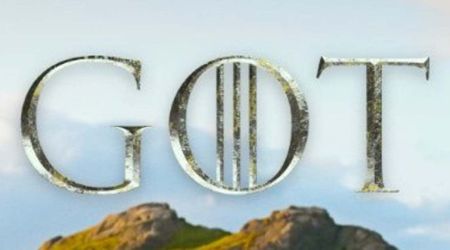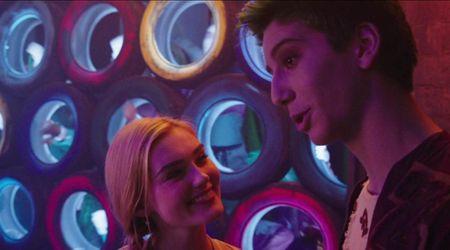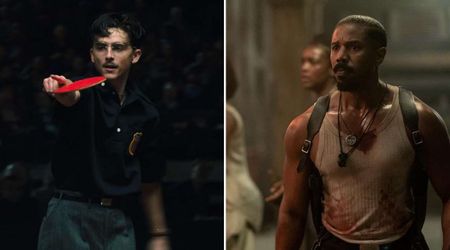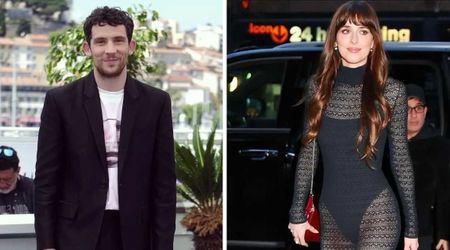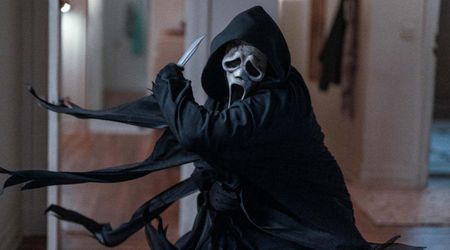Netflix's 'Adú' has eerie parallels to Brad Pitt-starrer 'Babel', the masterpiece of hyperlink cinema

Some stories are best told from multiple perspectives. The complex issues surrounding the European refugee crisis is one of them. Hyperlink films, mimicking how we jump from global to local, from macro to micro perspectives through hyperlinks on webpages, has become a defined cinematic genre in the globalized world.
One of the masterpieces of the genre is 'Babel' directed by Alejandro González Iñárritu that connects people and objects that travel across borders to connect disparate stories into a layered narrative that jumps between the disparate territories and cultures of Morocco, Japan, Mexico, and the United States. In the film, the human stories stand out starkly, molded by the context of the characters' immediate surroundings and the cache that each of their nationalities and their belongings holds.
Netflix's 'Adú', a Spanish language film, treads similar grounds intertwining three separate stories to tell the story of migrants and borders with a human face. The heart of the film lies in the painful journey across borders of a young boy named Adú as he escapes poachers in his native village in Cameroon to get to the European border in Melilla.
The desperation of Adú and other black protagonists are contrasted with the story of the conservationist, Gonzalo, the "white savior" of elephants who ignores the poverty and desperation of locals like Adú. We also see him deal with far more compassion with his daughter Sandra, a troubled teenager on a self-destructive, downward spiral of drugs and promiscuity. This contrast allows you to see how self-indulgent first world cynicism is in comparison to the daily battles of locals in countries like Cameroon, Senegal, and Morroco.
Balancing out these two threads is the story of Mateo, a border civil guard in Melilla, who lies to protect his colleague, Miguel. However, he is stricken by guilt as he reads about Tatou, the political prisoner killed by Miguel at the border crossing. He finds redemption of sorts when he helps Massar and Adú enter Melilla as child refugees, securing their passage to atone for his false evidence at the trial.
In the film, events are set off when the poachers discover Adú and Alika's bike. This is how they are sure that there are witnesses who can identify them as elephant poachers. When Gonzalo comes riding in with the rangers, the poachers flee, leaving the bike behind. However, the poachers, who know the villagers, recall that Adú's family owns the bike and they attack at night, killing the mother. The orphaned children then start their desperate journey to the border to avoid being killed themselves.
Later, we see Gonzalo giving the bike to Sandra in return for a donation to the elephant reserve. Sandra treats it as her African "souvenir", not knowing the pain and story of murder embedded in the object's provenance.
In 'Babel' too, events are set off by a gun gifted by a Japanese man to his Morrocan guide — the same gun that his wife used to shoot herself. The gun as an object has violence embedded in it but this is unknown to the people who exchange it in Morroco. This, in turn, sets off another chain of events that leads to Cate Blanchet's character, Susan, being injured that in turn precipitates the crisis in the life of their nanny, who is an illegal immigrant.
Like the gun in 'Babel', the bicycle in 'Adú' also exchanges hands and moves across borders, affecting the lives of those who come in contact with it. Like 'Adú', 'Babel' had also touched upon the differential treatment between people from first world countries and third world countries and the clout they wield at borders and beyond because of their passport. It shows how mistakes made by people from poorer countries extract a heavy toll, while the white protagonists often get multiple chances to better their situation, no matter how desperate they are.
If you liked 'Babel', chances are you will enjoy 'Adú' too. The film premiered on June 30 on Netflix and is available to stream on the platform.

